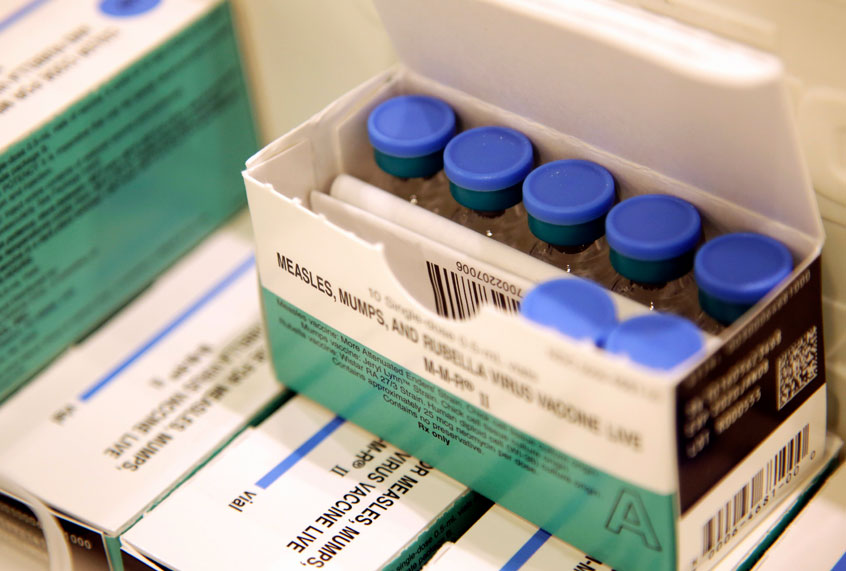In the year 2000, U.S. health officials announced they had eliminated measles from American life. Yet last week, 90 new cases were reported by the Centers for Disease Control.
The 90 new confirmed cases of measles last week brings the total number of cases in 2019 to 555, according to The Washington Post. This is the highest number of confirmed measles cases in five years and could be linked to the anti-vaccination movement that has convinced many parents that MMR vaccines are linked to autism.
It is also the second-largest number of cases to be reported in a single year so far since 2000. As the Post reported, the largest epidemic occurred in 2014 when “the United States reported a record 667 cases, including one large outbreak primarily among unvaccinated Amish communities in Ohio that accounted for more than half of the cases.”
The most recent outbreaks appears to have originated from travelers who visited countries experiencing outbreaks of the disease, including Israel, the Philippines and Ukraine. There are six current outbreaks in California, New Jersey and the states of New York and Washington.
Although scientific evidence overwhelmingly proves that there is no link whatsoever between vaccinations and autism, a growing number of Americans have refused to vaccinate their children due to the unfounded concern that the vaccines could land them on the spectrum.
“Vaccine hesitancy means decline in vaccination rates, which could lead to more outbreaks of vaccine preventable diseases,” Eve Dubé, a medical anthropologist and researcher at the Research Center of the CHU de Québec-Université Laval, told Salon by email last month. “Public health [officials] need to apply different measures to deal with outbreaks, which takes time and energy and diverts resources from other important public health issues.”
Her thoughts were echoed by Gary Freed, professor of health management and policy at the University of Michigan.
“Any decline in immunization rates will result in an increase in vaccine-preventable diseases,” Freed told Salon by email. “We have the opportunity now to prevent so many life threatening diseases and have saved countless lives through immunization. It would be a travesty for children’s health if there were widespread outbreaks of diseases which can kill or permanently damage children.”
As the CDC explains on its website, “in a given year, more measles cases can occur for any of the following reasons: an increase in the number of travelers who get measles abroad and bring it into the U.S., and/or further spread of measles in U.S. communities with pockets of unvaccinated people.” The website also showed that the 555 confirmed cases of measles in 2019 is more than the number of confirmed cases in 2018 (372) and 2017 (120) combined, as well as more than the total from 2010 (63), 2011 (220), 2012 (55) and 2013 (187).
As far as 2019 is concerned, the CDC’s website explains that “the states that have reported cases to CDC are Arizona, California, Colorado, Connecticut, Florida, Georgia, Illinois, Indiana, Kentucky, Maryland, Massachusetts, Michigan, Missouri, Nevada, New Hampshire, New Jersey, New York, Oregon, Texas and Washington.”

